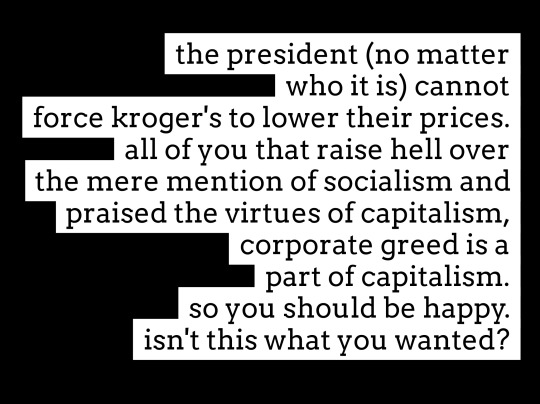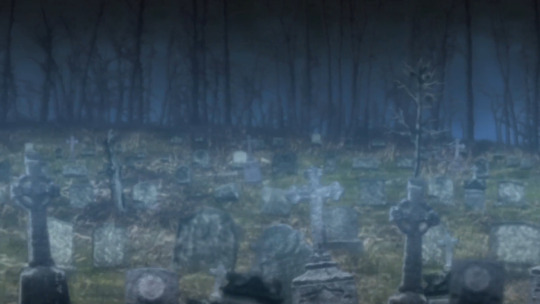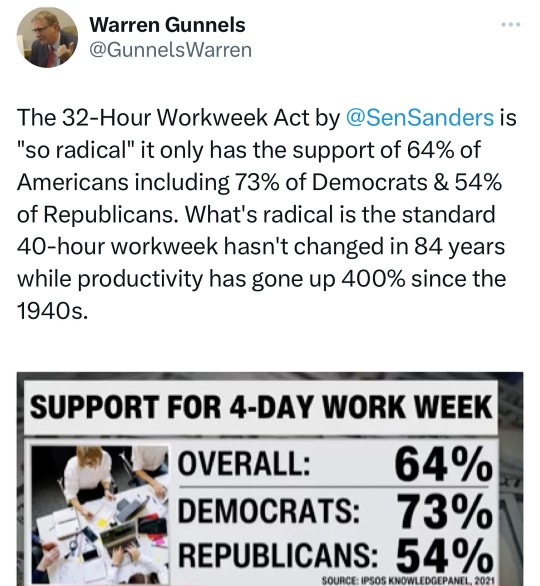#economic dynamism
Text
Philippines unemployment rate falls down to 3.5% in February 2024
Recently the Philippine Statistics Authority (PSA) confirmed that the unemployment rate of the nation fell down to 3.5% in February 2024, according to a Philippine News Agency (PNA) news article.
To put things in perspective, posted below is an excerpt from the PNA news article. Some parts in boldface…
Unemployment rate fell to 3.5 percent in February this year from 4.5 percent in January, the…

View On WordPress
#Asia#Blog#blogger#blogging#Bongbong Marcos#business#business news#Carlo Carrasco#economic#economic dynamism#economic growth#economic recovery#economics#economy#Economy of the Philippines#employment#Ferdinand Marcos#geek#Inspiration#jobs#Marcos#National Economic and Development Authority (NEDA)#news#Philippine economy#Philippine News Agency (PNA)#Philippine Statistics Authority (PSA)#Philippines#Philippines blog#Pinoy#PNA.gov.ph
0 notes
Text


#political commentary#capitalism#corporate power#consumerism#economic policy#socialism#government intervention#market dynamics
134 notes
·
View notes
Text
Me: positive responses to my school work? The hell?
Teacher: well, yeah, you did good-
Me: but this- I! Did this!
Teacher: yes. Well done
Me: holy shite! I did good? What if I do another task?
Teacher: awesome!!!!
Me:

I present to you: the mind boggling concept of getting praised for your accomplishments rather than punished for your mistakes.
I've been living off this experience for over 6 months.
#uni#personal#praise#it's like wtf#and yeah i know i get compliments in ao3 comments and under art posts#but there is a difference#i'm doing art and writing for fun and don't owe you anything#so critique would simply cause me to stop sharing stuff#so praise here as economical value#but my teachers have faces#and I am depending on their good will#there is a different power dynamic between us than between a writer and their voluntary comment section#though writing and your responses still do mean the world to me#i think you know what I mean
21 notes
·
View notes
Text












gankutsuou + incest as the meaning of the gothic novel - ruth perry
#gankutsuou#gankutsuou: the count of monte cristo#despite being an adaptation of a dumas' novel you can't ignore the japanese social context in which gankutsuou was made#as a response to the economic recession of the late 80/90s + how many young people had their futures stolen by the preceding generation#while growing up having to navigate through society's indifference towards them#that's why the anime decided to focus on the younger generation. eugenie's outfits being from the 60s are emblematic of this:#a decade in which the rise of the student movement/protests/rebellions were happening all over japan#gankutsuou addresses these themes (and the dynamics within the family unit - of institutions being parasitic upon the youth)#by adhering to the gothic paradigm - thus being a contemporary gothic piece#anyway... love how this episode is filled with birth imagery! the juxtaposition of the maternal body as womb-tomb#the “malevolent womb” as barbara creed describes
21 notes
·
View notes
Text
*Sweating throwing up nauseous dizzy*
What if vox is Asian American



#Hazbin hotel#vox#hcs#musings#idk I just think it would be cool#i feel like there aren’t a lot of East Asian villains that are allowed to be sloppy boisterous and vulgar outside of media made by Asian#people#I know a lot of people draw his human form white as a sheet but i dunno#I also think that would explain why he initially clicks with Alastor so much#both of them are part of marginalized groups in their respective time periods#swamped by the expectation to be subservient to their white peers#but they both rise above it with their passion for the innovation of entertainment#to describe that dynamic it’s basically that Alastor is the burr to vox’s hamilton . except in this version burr wins on most levels#this also gives context to vox’s raging inferiority complex bc. if his parents were immigrants at the time compounded with the economic#and war time struggles then that probably made him feel pressured to succeed quick and hard#vox would definitely be disconnected from his culture and obsessed with pursuing the American dream#whereas Alastor i think would be v in tune with creole based language and culture as evidenced by his close relationship with his mother#near the end of Alastor and vox’s friendship Alastor would likely mock him for abandoning his roots in search of prominence#it would actually be quite sad
13 notes
·
View notes
Text
there's a very specific kind of vibe that comes with living with your friends in final year that it just does not have in first year or even second year. like as a fresher it's usually the first time any of you have lived away from home let alone with SO MANY people your age and it's terrifying and exciting and randomised to boot so it's generally carnage for a whole year in the best and worst ways, and then second year you pick who you're living with and it feels like for the first time you're doing this adult thing PROPERLY. you have a place of your own now. these are the people you've chosen to live with. studying gets serious etc. but it's still fresh. it's still new. you still don't know how to navigate it. but final year? final year is when you actually get it right. you know how to manage your time better. you know what works for you and what doesn't. studying is the main focus and you've been out in the world for three years now and it's not loud and boisterous like it was in first year and you're not exciteable and awkward like you were in second year. you're comfortable. every single one of my flatmates has their own friend group and we mainly keep to our own social circles, but we'll still meet each other back at the house after a night out and sit in the kitchen or my room to do the debrief. sometimes i'll go days not seeing either of them despite sharing a house but every now and then someone will softly call up the stairs that 'the heating's on!' or one of us will sneeze and the other two will yell 'bless you!' through the walls. the lack of interaction isn't interpreted as dislike in ways it would have been even last year, because we're all just old enough to be past that now and settled enough in our friendship not to worry about it. idk. uni is very loud and unsettling a lot of the time so it's been really sweet to see how almost boringly comfortable final year is.
#like my day today was literally drag myself out of bed at 10am to meet my econ friends bc we're in a group together#and i spent two hours with them writing a fucking TRADE REPORT before coming home#and the rest of the day was kinda lost. i showered. i put a wash on. i had a nap. i mainly stayed in my room#which sometimes is the End Of All Things but today was quite nice#and i can hear in their rooms how my flatmates are doing the exact same thing. pottering about and getting on with uni#and we've barely spoken all day but earlier my one flatmate ran into my room all excited to show me her nails#bc she's been teaching herself to do gels and it took her 2 hours but im still one of the first people she wanted to show#and just now we all went to use the bathroom at the same time and it led to one of our Stair Sessions#where we all inexplicably just gather on the stairs and chat for no reason with a cup of tea#idk it's just nice. it's such basic shit but i can't belive in first year i used to spend EVERY DAY with these girls#and we were one single friendship group and that was all we had#and then in second year one girl branched off bc she lived in a studio and got into her societies#but me and the other girl lived together again and it was the same thing of she was a friend before she was someone i lived with#and weirdly that can actually be detrimental to a dynamic. but this year we're all just very solidified and confident in ourselves#and where we stand and yes we all have our own friendship groups outside of the house now#but there's still that love and simple comfortableness around each other that you only get with time and a hell of a lot of proximity#and a sense of being settled that maybe is just what happens as you get older#idk it's just really nice. if i had this exact same day in first year (doing economics and barely leaving my room)#it would've been a really bad depressive day for me so the fact i can find such contentment from it now is really heartening#i love my little life here im very proud of what ive been able to achieve :)#hella goes to uni#feeling nostalgic because SOME BITCH decided to ribs post
21 notes
·
View notes
Text
"In a mere 30 years, Singapore has become a leading economic power in Southern Asia. Recently, I asked some visitors from Singapore to what they attributed their country's dramatic rise. The visitors responded simply, "You have to realize that we have nothing - only ourselves". With no natural resources and with modest endowments of physical and financial capital, the people of Singapore realized that the country's only real asset was its people.
They thus invested in accordingly in their education system and in a host of related social infrastructures aimed at safe, healthy living conditions and economic opportunity for all members of their society. This [...] realization that people are our only real asset illustrates the core of what will probably determine which countries and which organizations will thrive in the 21st century."
- Human Dynamics, Sandra Seagal & David Horne
#one of my favorote books of all time & my bible#has some of the most powerful quotes#quote#human dynamics#text#socialism#socialization#community#communication#humanities studies#humanity#book#politics#economics#economic studies#vote
135 notes
·
View notes
Text
Also you should all watch Spice & Wolf
#it tricks you into learning rennaisance economic dynamics with a wolf girl waifu#also the male character is refreshing too#cosas mias
10 notes
·
View notes
Text



Okay, but for everyone already hating on Frye bc "forehead big", I honestly feel like she's my favorite because of this one interaction here. From everyone's arguments, you get a feel of what they're like
Shiver is artsy and poetic, yeah, but "rock is a foundation" is an overused sentiment. And Frye literally calls her out on this, saying "bro is that all you got?" It's like she's trying to come off as artsy, rather than actually being so
Big Man... I love you so much, but all you got for scissors is that they're sharp. That's about it
But Frye? Her reasoning for paper is its versatility--that it can be folded into anything as sharp or soft as you want it to be, AND can be used to write some slamming poetry (which is something you'd expect someone artsy like Shiver to say, huh?)
At the wrap up, when Shiver says "this is in the bag," Frye then says "bro bags are MADE of paper," she's got the strongest comeback out of everyone. She's already proving that, while maybe a little airheaded, she's no slouch in the group when it comes to wit
Anyways, I'm going team Paper this splatfest and Frye's already my pick for favorite member of the group
#splatoon 3#splatfest#splatoon deep cut#deep cut#splatoon frye#splatoon shiver#splatoon big man#twi talks#team paper#((the vibe I get from the three is that they're smart in three different ways#frye is street/social smart#big man is economics smart#and shiver is book smart#i really hope that's the dynamic here bc I think I'd love that personally))
121 notes
·
View notes
Text

We know. We been known before the evidence came out 💅🏽 listen to your friendly neighborhood communist that you write off as crazy when they tell you USA is behind the most crazy recent world event. Hersh also broke the My Lai massacre. US divers conducted a NATO drill 3 months prior to the explosion and planted bombs on the pipeline, detonated it months later to cause Russia $20 billion dollars in loss & make sure that Europe didn’t rely on Russian gas.an act of terrorism
#I think that bothers me is how quickly people say after evidence comes out that yeah of course this was USA#But prior to the evidence coming out it’s like well how do you know where is the proof?#the proof is in the economic principles and dynamics
23 notes
·
View notes
Text
Foreign direct investments (FDI) inflows jump almost 90% in February 2024
The data released by the Bangko Sentral ng Pilipinas (BSP) confirmed that foreign direct investments (FDI) net inflow went up by almost ninety percent in February 2024, according to a Philippine News Agency (PNA) news article. In terms of Dollar amount, the estimate was over $900 million.
To put things in perspective, posted below is an excerpt from the PNA news article. Some parts in…

View On WordPress
#Asia#Blog#blogging#business#business news#Carlo Carrasco#commerce#economic#economic dynamism#economic growth#economics#economy#Economy of the Philippines#finance#foreign direct investments (FDIs)#foreign investors#geek#investing#investment#investments#investors#jobs#money#news#Philippine economy#Philippine News Agency (PNA)#Philippines#Philippines blog#Pinoy#PNA.gov.ph
0 notes
Text


#bernie sanders#work week reduction#32-hour work week#overtime pay#productivity#technology#fair labor standards act#international examples#france#norway#denmark#germany#well-being#stress#fatigue#republican senator bill cassidy#small enterprises#job losses#consumer prices#japan#economic output#labor dynamics#artificial intelligence#automation#workforce composition
63 notes
·
View notes
Text
once again sitting with my head in my hands thinking about web weaving with de quotes + trigun. an act of complete self indulgence but i am so deeply unwell about these two things
#was gonna go on a whole rant re: trigun and the next world mural but its too long to contain in the tags of this post#source guys just trust me#it is a true act of love to take two things i am obsessed with and smash them together. forever and always.#and while Everything Sucks wrt trigun. even so. there is still a class structure in place to consider#would ww still have fallen victim to the eom were the hopeland orphanage well off? would ww have ended up an orphan at all#were he comfortably middle class? abuse within families is not a class specific problem but economic stress + lack of access to resources#needed to fulfill basic needs sure can make that shit Worse!#granted the middle class on nml is probably significantly smaller than it is in the us#hella worse class stratification#hey studio orange give me the class dynamics from the foot thick lore bible
2 notes
·
View notes
Text
A European promoter I spoke to recently said that only the blockbuster shows in Europe this year and next are likely to sell out, citing legacy acts like Bob Dylan and pop megastars like Harry Styles as being immune from market pressures. For the rest, especially those in the middle, staring at lacerations in venue seating plans will be the norm as ticket sales struggle to even cover their overheads and profits become a pipe dream.
The recent introduction of “dynamic pricing” by Ticketmaster might generate even more money for the likes of Bruce Springsteen on their tours, but all this is doing is taking any extra money that might have been spent on tickets for Springsteen et al + some other acts and re-routing it back to the tour gross of Springsteen et al. Live music within this model might just prove to be a next-level pioneer in trickle-up economics.
Some acts are responding by seeking to make tickets affordable for audiences, trying to lower their touring overheads and praying the equation keeps them in the black.
Hot Chip’s recent residency at Brixton Academy in London had tickets magnanimously frozen at £20 each. “[W]e know how hard things are financially for many people at the moment,” they said, “but we also know people want to go out to gigs and enjoy themselves.”
Paul Heaton and Jacqui Abbott recently announced that their upcoming UK arena tour would have tickets capped at £30 each.
Speaking on BBC Breakfast, Heaton said, “It’s really important through the coming months, and possibly years, that we tell the fans, ‘We’re getting paid enough and we want to keep it low for you.’ I think people are delighted. I’m very much against greed within the industry because I feel as though there is quite a lot. So we’re trying to just battle and say, ‘Look, we’ll do it for as low as we can,’ and set a bit of an example.”
It was a fine and noble gesture, but many acts – even if they harshly stripped things back at a production level – would still not be able to make such prices work. This is a beautiful option for some, but it is not a workable option for many.
- Eamonn Forde, Music Business Worldwide, on the economics of live music
22 notes
·
View notes
Text
@archaalen i’m breaking this out as its own post bc it’s a huge digression that doesn’t really bear on the main thread, but I wanted to say something about this:
Poverty reduction and improving Healthcare are resisted with almost equal fervor in this country. A concerted effort has been made so that ANY political reform away from baseline is now fraught and prone to collapse without unsustainably-large voting mandates.
in that I think it depends on the strategy and depends on the era. Opposition to poverty reduction, esp. through welfare, is mostly tied to racial anxieties and is mostly a Reagan and post-Reagan thing, thanks to the myth of the welfare queen and the stereotype of poor, urban, black poverty that goes hand-in-hand with the shift in urban economics after white flight (itself a consequence of desegregation). which is to say, I don’t think you’re wrong per se, just that this is an artifact of the present political moment, and one that’s not inescapable.
One reason Sanders is comparatively successful as a politician is that his economic platform is framed in terms which IMO hearken back to pre-Reagan debates on poverty and welfare, and are more akin to early 20th century socialism in America and Depression-era anti-poverty policy. Note I mean his rhetoric, and not the content specifically; I think Sanders has some cross-party appeal that identical or nearly identical policies don’t have under similar politicians that are closely aligned with him, because Sanders, mostly unintentionally, is less off-putting to people who are worried about the undeserving poor benefiting from social programs. it helps that he’s white and old and fuck, ofc, in the same way that if AOC never mentioned race or gender and owned a whole arsenal of small arms she’d probably still be depicted as a swivel-eyed lunatic, just because some voters are inevitably going to judge you on your appearance.
Economic issues are an intensely racialized dynamic in the US--the undeserving poor are stereotyped as the lazy, drug-addicted urban blacks, the deserving poor are stereotyped as the hardworking rural or small-town whites who can’t catch a break, and this whole dynamic is derived from, modulo 160 years of metamorphic processes on the original social division, a need by the land and propertyholding class to foster a division that prevents solidarity among the peasant classes to weaken their political power. Because this enduring division produces politics in America that are just insanely, fractally racist, it is possible to find examples of what @afloweroutofstone usefully calls “red state socialism:” social programs and anti-poverty measures popular even in red states, because either they were originally aimed only at whites (common for Depression-era and post-WW2 social programs in the US), or are framed/thought of as primarily benefiting whites.
Now, I am not arguing that ignoring the relationship between race and poverty is honest, morally correct, or tactically correct. Nonwhite voters matter, their interests are legitimate, and voters who are reluctant to support policies that would benefit them, because they’re worried a racist caricature in their head might also benefit, are assholes. And while there are strains of political thought that IMO focus so intensely on race as a dividing line in American politics, without considering either its origin in a system of oppression with economic ends or ways it could be indirectly mitigated through focusing on more equal wealth distribution (because racist rhetoric is most effective alongside economic misdirection--i.e., you are poor because they are getting the wealth that should be yours), in ways which end up being tactically counterproductive, but I think these are not actually very important in the grand scheme of things, and mostly come to general attention when being used as a cudgel against those who have the temerity to mention racial injustice in a political context.
and looking at things from a recent perspective, I think there’s even more reason to be optimistic, because racial dynamics around economic discourse in the US are only part of the story. the other part is the degredation of the consensus of the 80s, that social programs are bad and a “frictionless” (i.e., precarious) labor market is good, and economic growth goes lockstep with how deregulated the economy is. that whole picture blew up hard at the end of Bush’s second term, hard enough that the policies of the 80s and 90s have been retroactively completely discredited in large sections of the political discourse, and the subsequent period of recovery has not really improved the picture what with the pandemic and great resignation and real estate and crypto bubbles that can be seen from space.
in short, I think that while it’s true that right now you need supermajorities to do something about economic justice right now in the US, the arrow is trending favorably generally, bc in the 90s the overwhelming consensus was that the best way to reduce poverty was to end welfare, the 2008 recession was a huge shakeup to the post-Reagan consensus that dominated even the Democratic party (as under Clinton), and further challenges to that consensus continue to mount, although intermittently. IMO the pandemic checks were kind of a watershed--suddenly we had a context where not only was the idea of the government literally just mailing everybody money a possibility, but it was overwhelmingly popular not just with voters but with politicians.
the heavily gerrymandered and gerontocratic nature of the American political system continues to slow progress, but so far only slow it. hopefully enough progress is made to circumvent a really big explosion.
#healthcare is effectively part of the economic issue#and while there are industry specific pathologies#i think a lot of the political dynamics controlling the debate are effectively the same
20 notes
·
View notes
Text
recommended tumblr post: economists are unethical and evil and we should just kill them all
me, an economist:
#moi#not in like an official capacity but i do have a degree in economics!#…which might have been kind of unintentional bc my econ teacher in HS was really good#and it turns out the thing i was actually interested in was closer to behavioral economics & herd dynamics#but still!#anyway it kind of says something that the thing that post was mad about#was in fact an egregious misrepresentation of an egregious misinterpretation of what the guy actually said#on the topic of the aging population in japan#this japanese economist suggested that part of the problem is that the population IS aging and NOT retiring#and young people aren’t able to work their way into steadier positions or into leadership#so he suggested a potential solution could be for older folks to like. commit (figurative) career seppuku.#acknowledge that your time has come and gone and step down with honor and grace#what the article headline said: ‘JAPANESE ECONOMIST SAYS ELDERLY SHOULD COMMIT MASS SUICIDE (INCLUDING RITUAL DISEMBOWELMENT)’#which is????#kind of super racist????#like is it technically accurate to call seppuku ‘ritual disembowlment’?? i mean i guess???#that’s just not the connotation it has??????#like the point here is ‘to go with honor.’ not ‘ritual disembowelment followed by ritual beheading’#so um anyway
4 notes
·
View notes